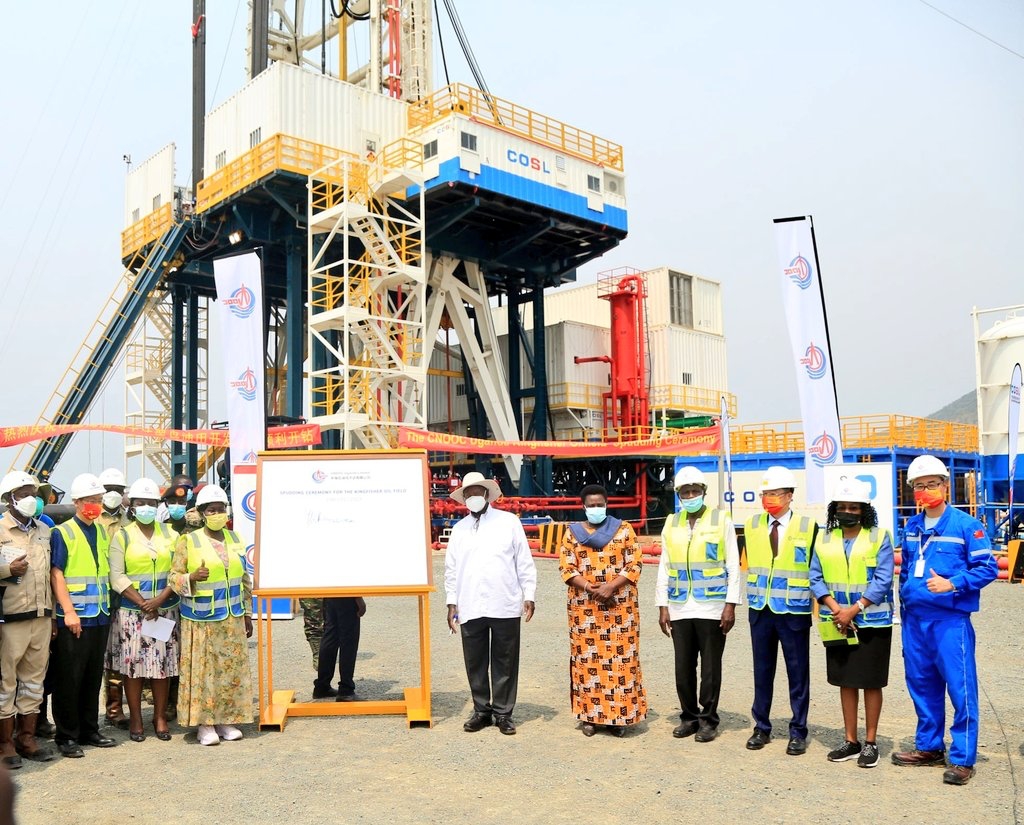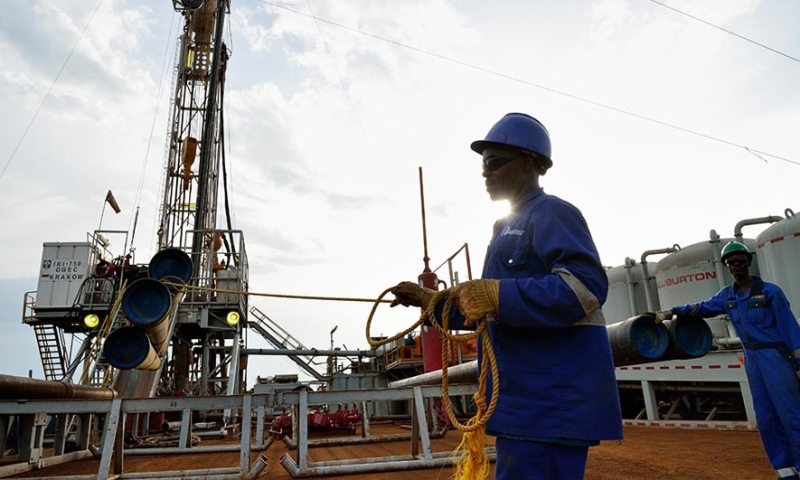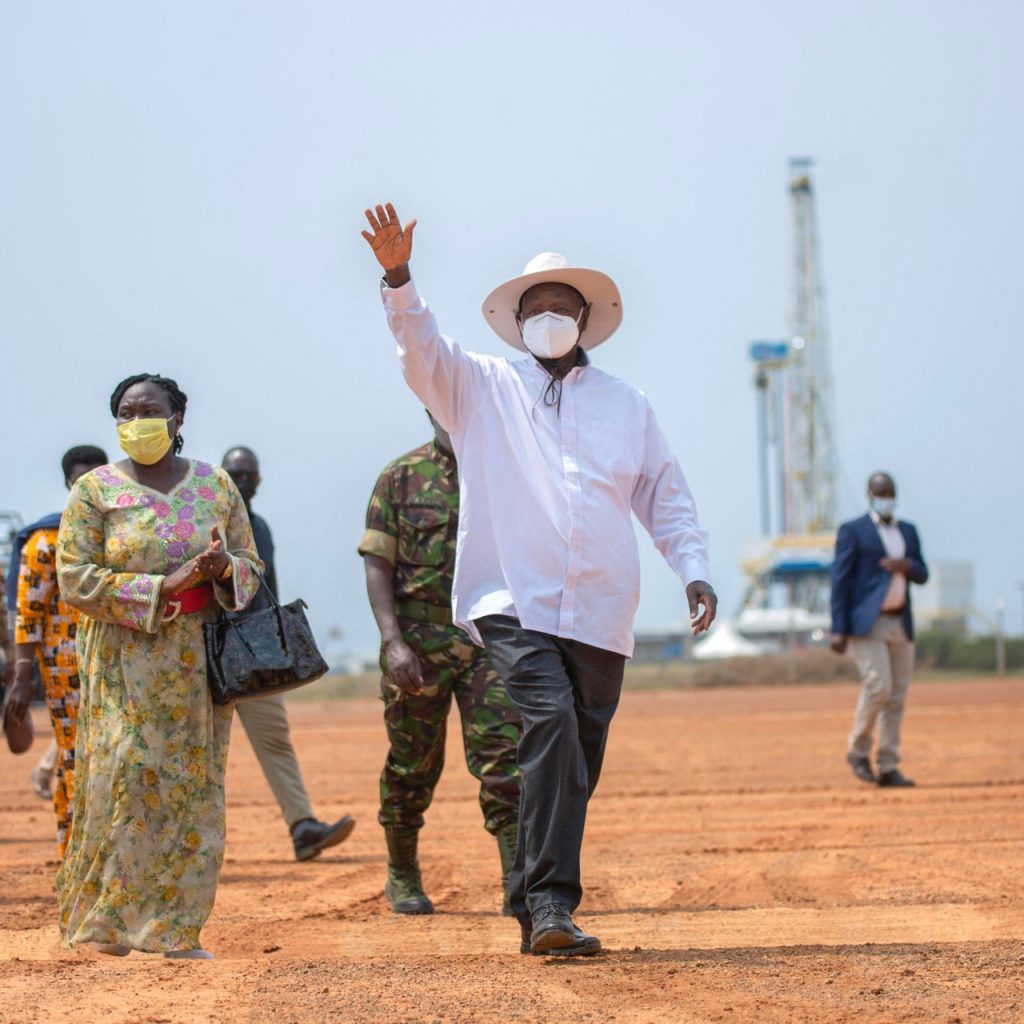
In an effort to fulfill its goal of producing its first oil by 2025, Uganda on Tuesday January 24, launched its first oil drilling programme, according to the petroleum agency.
The Kingfisher field is part of a $10bn scheme to develop Uganda’s oil reserves under Lake Albert in the western part of the country and build a vast pipeline to ship the crude to international markets via an Indian Ocean port in Tanzania.
“The president Yoweri Museveni has officially commissioned the start of drilling campaign on the Kingfisher oilfield,” the Petroleum Authority of Uganda (PAU) said on Twitter, describing the development as a “milestone”.
In one of the world’s most biodiverse regions, the East African country discovered commercial petroleum deposits about two decades ago, but a lack of infrastructure, such as a pipeline, has repeatedly delayed development.
According to PAU, the Kingfisher field, which is run by the government-owned China National Offshore Oil Corporation (CNOOC), would have a maximum daily output of 40,000 barrels of oil.
“We are excited as a country and Africa,” energy minister Ruth Nankabirwa told news reporters.
President Yoweri Museveni launched the program at a site in the Kingfisher project area, one of the country’s two commercial oil production zones, according to PAU, which oversees the petroleum industry.

France’s TotalEnergies runs the second project region in Uganda, Tilenga, which lies north of Lake Albert and astride the River Nile.
All of Uganda’s current oilfields are jointly owned by CNOOC, TotalEnergies, and the government-run Uganda National Oil Company (UNOC).
Uganda expects to generate roughly 230,000 barrels of crude oil per day at its highest level. The country’s crude reserves are estimated at 6.5 billion barrels, of which 1.4 billion barrels are recoverable.
The plans to extract the oil at Lake Albert, a 160-kilometre (100-mile) long body of water separating Uganda from the Democratic Republic of Congo, have run into strong opposition from rights activists and environmental groups.
Tens of thousands of people’s livelihoods and the region’s delicate ecological, they claimed, were in danger.

Author-Roberta Appiah



